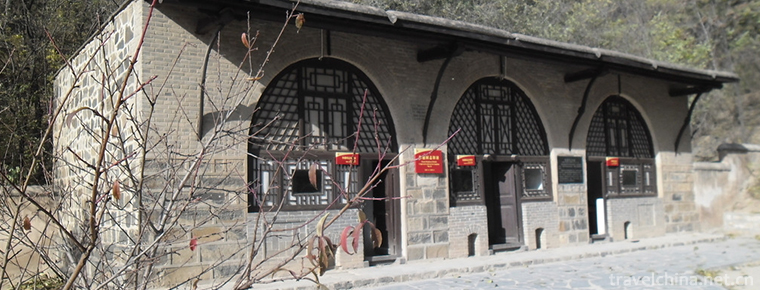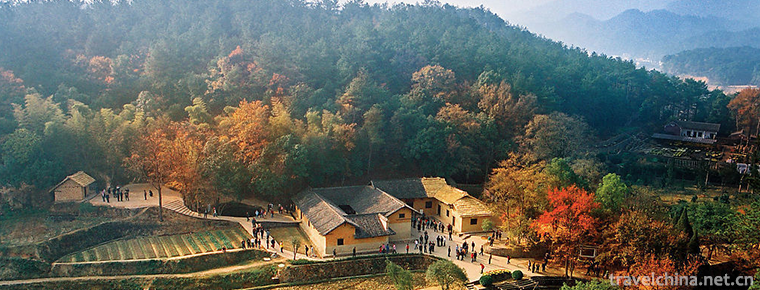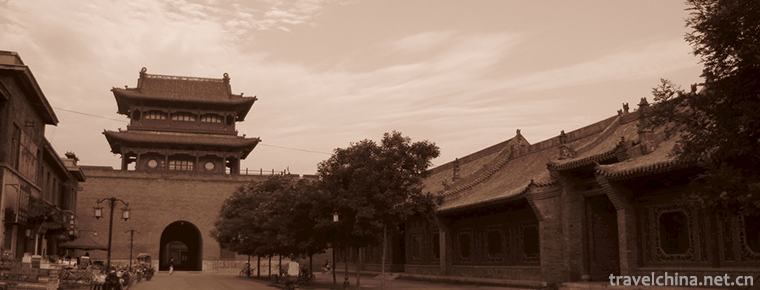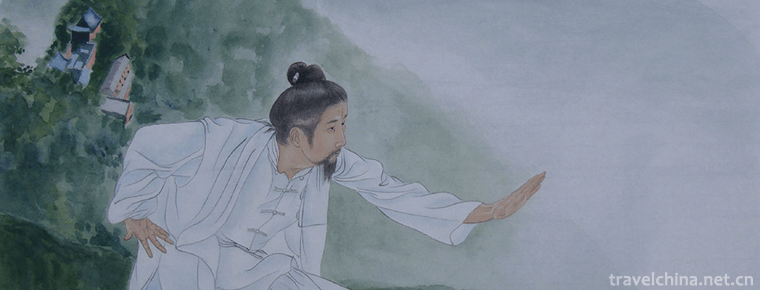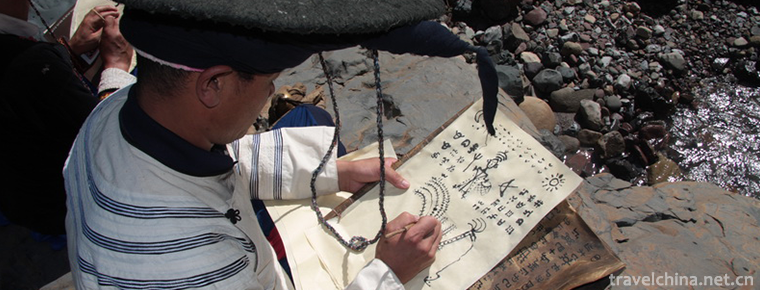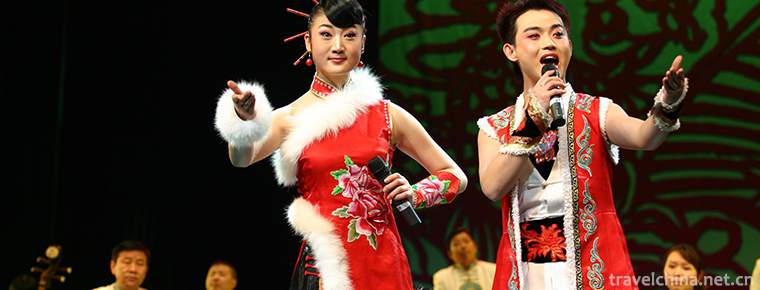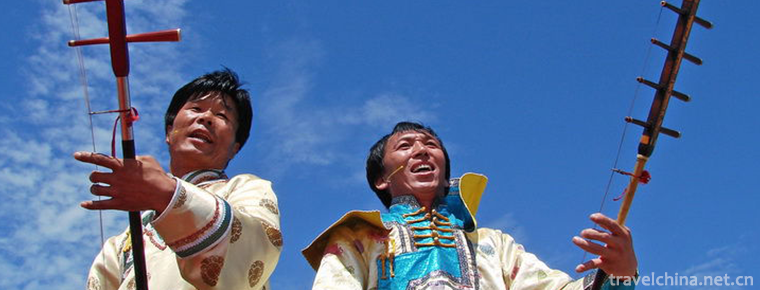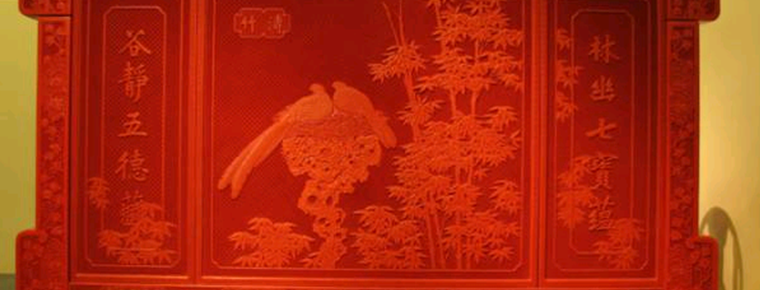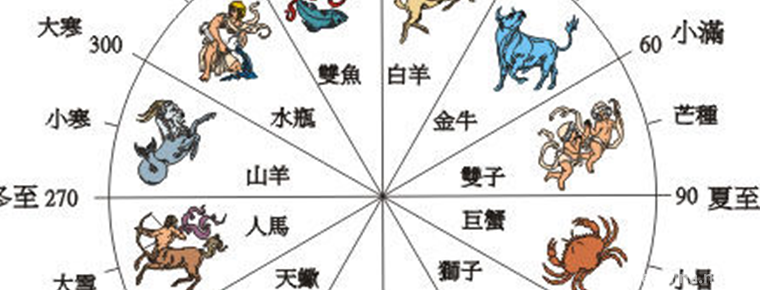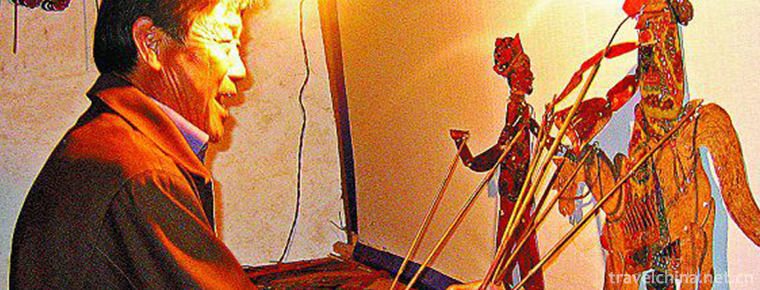Guan Hanqing
Guan Hanqing
Guan Hanqing (before 1234) - about 1300 The original name is unknown. The word "Han Qing" is already Zhai. The Han nationality is a member of the state of Yuncheng (Shanxi province). Another place of birth Mostly (now Beijing) and Qi Zhou (now Hebei province) Anguo And so on. Yuan Drama Founder, " Four Yuan Opera The first and Bai Pu , Ma Zhiyuan , Guang Zhu Zheng It is also called "four masters of Yuanqu".
The greatest achievement of Zaju is 67, and there are 18. the injustice to dou e " Guan Hanqing wrote a lot. Historical drama Such as Single Sword Society "," Single whip "," Xi Shu dream "San Qu" today, there are more than 40 small orders and more than 10 sets.
Guan Hanqing's "I am a steamed rotten, boiled unfamiliar, beating not plaque, fried not exploding, ring a copper pea" ("a flower is not old") image is widely known as " Qu Sheng "
Paul Mauriat's History
Family doctor
Guan Hanqing was born at the end of Jin Dynasty, and his family background and living conditions were obviously superior to that of ordinary people. He was able to receive education in a feudal society which was far from popular education, especially in a period of years of war and social unrest, and the education level was relatively high. After the unification of the Yuan Dynasty, according to the origin of Guan Han Qing's practicing family, he was enrolled by the government as a "medical user". In fact, he was an ordinary lower class doctor who was close to the masses.
North drift mostly
Most of the Yuan Dynasty was a world-famous business center, travellers. Marco Polo Described Yuan Dadu The bustling scene, the large population, the huge houses of the Chinese house, the gathering of people from all over the world, and "the import of the huge foreign matter and the hundred things into the city" are incompetent and comparable in the world of Zhucheng. "The most beautiful city in the world is second to none."
After killing Mongolia, Guan Hanqing came to Dadu and began to specialize in drama activities in order to earn a living. Guan Han Qing was very talented, and in most days of his life, he went to entertainment places to create drama activities, and even personally appeared. When he presided over Yu Jing's book club, he had close contacts with Wang Heqing, Yang Xianzhi, Fei Junxiang, Liang Jinzhi and so on. He often worked together to deliberate on the diction and evaluate the works. a place for entertainment in the ancient china Tile shop He is quite familiar with some famous artists. He may be with a dramatist. Wang Shipu There is a certain relationship. It is said that two people have completed the zaju. Romance of the West Chamber Cui Zhang's sixteen events can be used as proof.
Flowing into the south of the Yangtze River
In the Yuan Dynasty, besides the majority, business in southern Hangzhou, Suzhou, Guangzhou, Quanzhou, Yangzhou and Zhenjiang was also very developed. After the subjugation of the Southern Song Dynasty, a large number of northern playwrights and performers went south in order to make a living. Guan Hanqing also went down to Yangzhou, Hangzhou and other places, and continued to engage in his artistic activities. The prosperity and prosperity of the South left him a deep impression. After performing and traveling in Hangzhou, he praised Hangzhou with the words "the world's fairy village and the wind in the world", depicting the beautiful scenery and prosperous life of the city. Yangzhou, the ancient Chinese wind and gifted scholar, as long as he ties up, he always likes to mention that Guan Hanqing has seen pearl curtain show here, and wrote the "Pearl curtain show": "ten li Yangzhou scenery, shades of immortals", the story of gifted scholars and beautiful ladies. He also met Zhu Zai Xiu's disciple Sai hung Xiu, Yanshan Xiu, Hou Hou Qiao, black dog head, and Wang and Qing as "Uncle" Shun Shi Xiu and other Zaju actors.
Literary achievement
Zaju
primary coverage
Guan Han Qing Zaju covers a wide range and involves almost every field of social life in the Yuan Dynasty. According to its content, it can be roughly divided into three categories:
The first kind of public drama shows the political darkness and tyrannical tyrant, and touches sharp social contradictions. Praise the struggle of the people.
Such as "Dou E's injustice" Butterfly dream " Lu Chun long And so on. The most representative work is "Dou E injustice", which has been included in the world's great tragedy, reflecting the spirit of the people's struggle and accusing the society of darkness. She wrote a small widow, Dou E, who was falsely accused of "killing a father-in-law" under the persecution of a corrupt official. Dou E's injustice is of great significance. With the high sense of social responsibility of "close to the sky", the writer puts forward a problem of universal significance in the feudal society that "every official has no intention to correct the law and makes the people unable to speak", which strongly accuses the feudal system of fighting against the people and the evil of the people.
The second kind of marriage drama is mainly about the life and struggle of the lower level women, highlighting their bravery and resourcefulness in struggle, and affirming the women's independent choice of marriage. Those seemingly evil people are smart hands.
Before, each one was blown like a deflated ball, so the work also had more comedy meaning. Such as "save the wind and dust" and "Wangting Pavilion" Gold Thread Pool " Regulating the wind and moon "Moon Pavilion" and so on. Among them, "save dust" is the most representative. "Save the wind and dust" wrote the prostitute song Yin Zhang and poor scholar, and then fell in love with her. After that, she married a wealthy businessman Zhou she. Zhao Paner, a prostitute, pretended to marry Zhou she and rescued the song. Song leads Zhang to marry Ann. The works empathize with the prostitutes and Confucian scholars at the bottom of the society, exposing the hypocrisy and brutality of the officials and businessmen.
The third kind of historical plays, through shaping heroic figures, praising heroes and endowing heroes with the mission of saving lives, expresses his critique of social reality and his longing for heroes. Such as the single Sword Society. Xi Shu dream " The achievement of the "single Sword Society" is most outstanding. It is based on the romance of the Three Kingdoms and Lu Su Zhuan. Lu Su In order to get Jingzhou, a banquet invitation. Guan Yu The story of Guan Yu went to the meeting alone, creating a heroic image of awe inspiring and fearless. Guan Hanqing's historical plays originate from historical biography but transcend historical biography. His foothold is not to reappear the truth of history, but to integrate a large number of realistic contents with historical themes, and to embody the spirit of the times and the basic characteristics of dramas in historical dramas. This is the essence of Guan Han Qing's historical plays. In these historical dramas, Guan Hanqing praises justice.
The industry praises the hero's achievements, showing the love and hatred of an upright dramatist, which is consistent with his spirit embodied in other dramas.
Due to the limitations of history and class, Guan Hanqing criticized the feudal rulers in the position of the peasant class. rebel leader The views of peasant uprising in Liangshan and China still can not get rid of the traditional prejudices; some dramas promote feudal ethics and ethics, such as Chen Mu's Godson; some of the works have a style of banning and laughing, showing a vulgar taste. It is especially pointed out that Guan opera is full of illusions about honest officials and "King's law". It is only a kind of justice that justice is done by honest officials and "King's laws". Social reformism Illusions can not be cured by social ills. A ready-made panacea
artistic characteristics
Guan opera is a peak of Chinese classical opera art. Guan Han Qing skillfully used the form of Zaju in the Yuan Dynasty, and made outstanding achievements in shaping characters, dealing with drama conflicts and using opera language.
1. Guan Han Qing's plays give priority to shaping the positive protagonist. In the history of Chinese literature, no such dramatic artist has created such a large number of artistic images as Guan Hanqing did. Like prostitutes, Zhao Paner, Song Yinzhang, Du Ruiniang, Xie Tianxiang and so on have different personalities. Under the oppression of Lu, he had a misfortune of being taken away by his wife. However, the attitude of Zhang Zhong and craftsman Li Si of the intermediate official was quite different from that of the craftsman.
2. in dealing with drama conflicts, Guan Hanqing is good at refining exciting ones. Dramatic plot The miracle of a good and innocent widow was discarded and discolourful; the heroic achievement of single handedly deterred the enemy; the husband who reluctantly sent his wife to allow the powerful to occupy; the mother who allowed his son to pay his life to save his son's wife; and the servant girl who was abandoned by the loved ones and forced to speak for him. These plots seem both legendary and rooted in the deep realities of the soil.
The drama conflict of Guan opera is also shown in its short play. stage spectacle Change with steps is rich in variety. In this way, the dramatic scenes are flickering, changeable, and beyond the audience's expectations.
3. Guan Han Qing is an outstanding master of language and art. He draws on a large number of folk vivid language, and creates exquisite classical poetry, creating a vivid and fluent. Natural color Language style. He is an outstanding representative of the natural school in Yuan opera. He really achieves "people learning their dialect" and their real qualities. There is no overflow.
The characteristics of Guan opera language are: the personalities of character language, the voice and the mouth of the characters, and the identity of the characters.
Guan Hanqing is a dramatist who is familiar with stage art. His opera language is both natural and practical, with the characteristic of "melting into the ear", without any obscure faults. Unlike some literati dramas in Ming and Qing Dynasties, they played with allusions and loved books. Guan opera is also right in the arrangement of words and songs. It is also a character of "editor in chief" at that time.
San Qu
There are about 49 pieces of Han Qing San Qu (about 57), depicting the bustle of the city and the life of the artists. parting grief And self expression of ambition.
primary coverage
1. depict urban prosperity and artiste life. The two scenes of "Hangzhou scenery" and "Nan Lu Zhi Hua", "Zhu Zhu curtain show" are more truly reflected. Song and Yuan Dynasties The scene of Hangzhou. "Hundred Li street is neat and tidy, and there are more than 10000 pavilions, but there is no half answer." It is: "Shui Xiu Shan Qi", "Metropolis fan Fu", "people's smoke collection", and the geisha tile house spread all over the place, geisha. Actor Display one's skill to the full. After seeing this wall, he looked at the wall.
2. Guan Han Qing depicts the scattered songs of men and women in their sorrow and sorrow, and is very touching. It is the characteristic of this part of the works that the emotions are rich and deep, and there are no false elements.
3. write your own life and express your ambition. a flower] Set number Writing humorous, hot, hot, full of self conceit, self mockery and self enjoyment is an important basis for studying Guan Hanqing's life philosophy, and also a rare masterpiece in the Yuan Dynasty. Nanlu a flower And so on, describing one. a place for entertainment in the ancient china Artist's life The situation expresses the great aspiration of a civilian playwright: always with the fireworks and geisha at the bottom of society and the talented people of the book society, who are not afraid of oppression, struggle, and endless death. These dignified ideas and aspirations are expressed in words that are extremely witty and humorous and play the world. It is really unique in spirit, full of wit and humor, and shows the resilience and fighting spirit of a versatile dramatist.
artistic characteristics
Guan Hanqing San Qu It is rich in content, fresh and vigorous in style, and has high artistic value. Men and women love affairs are the most numerous works. The description of women's psychology is meticulous and meticulous. It is truly touching to write sorrow without sorrow, bold and bold in style, and humorous in words and phrases; language is popular and colloquial, vivid and natural; it can express the true nature of the song very well; it is good at using the way of white drawing, and is good at writing scenery, and it is more vivid and vivid.
Repertoire version
There are 62 kinds of dramas of Guan Han Qing in the record of "ghost recording". Fu Xihua There are 67 types of drama in the Yuan Dynasty. There are 18 kinds of dramas. There are still different opinions on whether there are several kinds of works. The following are the following:
1, "the earth's injustice": Sixty percent off wedge. The drama is fourth fold, and the Sinto Tian Zhang is two. Cheap visit makes Post. According to Yuanshi Bai Guan Zhi and Nan Cun dropout record, the year 1291 (to twenty-eight yuan) changed. Press Department It is a Secretary for clean government. It is known that the play was regarded as the works of Guan Han Qing in his later years after 1291. The extant editions of the play are mainly written by Chen and outskirts in the Ming Dynasty, and published in the 1588 (Wanli sixteen years) by Xu Feng, a famous dramas in the Ming Dynasty. Meng Cheng Shun This book is composed of the selection of ancient and modern drama, the collection of Jiang and Jiang, and the selection of Yuan Qu by Zang Maoxun in Ming Dynasty. Mao Shun Tsang It has been processed and compiled with reference to a variety of Tibetan books. Therefore, Zang Ben is the best version of the Guan opera.
2, "Wangjiang Pavilion mid autumn cut": a total of sixty percent off. The extant 1598 (Wanli twenty-six years), the Ming Dynasty, Zi Bian Zi Zaju selected edition, Ming Wang Ji De Wan Li Gu Qu Zhai Zaju "ancient drama" and "Yuan Qu selected" this. The top two plays are "Wangjiang Pavilion, Mid Autumn Festival, and dawn".
3, "Zhao pan wind and moon to save wind and dust": a total of sixty percent off. The extant editions include the old masters and the Yuan opera.
4. Package waiting system Zhi Chai Lu Chai LAN "Sixty percent off wedge. In the name of Guan Hanqing, "ghost recording" was not recorded in the name of the play. But the Ming Dynasty "drama of the famous masters" and "Yuan Qu selected" are all entitled "Guan Hanqing's compilation"; "today's music textual criticism", " Summary of Qu Hai head The book is also written by Guan Hanqing. From the artistic style of drama, it is also similar to Guan opera. Moreover, the story of Yang Xianzhi's "cold pavilion", which was quoted in the first seventy percent off lyrics and used by Guan's "Mo Ni Jiao", can be tentatively set aside before any new negative material is discovered. There are mainly the old masters and the Yuan opera.
5. Package waiting system Three butterfly dream "Sixty percent off wedge. Meng Chengshun and Cao Dongting's edition of "ghost book" did not record this residence, so some people suspect that it is not related. but Tianyi Pavilion This book "ghost recording", " Taihe sound spectrum Guan Hanqing, who wrote all the famous dramas and Yuan Opera selections, can be regarded as "Guan Zhuan". There are now "old masters drama" and "Yuan Qu selected".
6. Gold Thread Pool "Sixty percent off wedge. There are "old masters drama", Gu Quzhai's "ancient drama", "ancient and modern drama selected, Liu Zhi Ji" and "Yuan Qu selected".
7. Money big Yin Zhichong Tian Xiang Xie "Sixty percent off wedge. The extant "ancient famous dramas" and "Yuan Qu selected".
8, Wen Taizhen Jade mirror stand ": Sixty percent off. The extant "famous masters' Zaju", "the ancient drama", "the ancient and modern drama are selected, Liu Zhi Ji" and "Yuan Qu selected".
9, "Wei Chi Gong single whipping": Sixty percent off wedge. Existing Ming Zhao Qi The book "Mai Wang School notes, school books, ancient and modern dramas" and Ben and Zai Yuan opera. Last two topics Shang Zhong Xian Write. Shang Zhongxian as "Wei Chi Gong three capture", the extant " Thirty kinds of Yuan Drama "Ben", therefore, from the school edition of Zhao Qi's US dollar book, it must be regarded as a close examination.
10. Guan Da Wang goes to the sword Club alone. ": Sixty percent off. Extant "thirty kinds of Yuan opera," Ben, "Wang Wang School notes, school books, ancient and modern Zaju" Wang Ji This is a compilation of the original drama of the lonely yuan and Ming Dynasties. The recording of "ghost recording" and "thirty kinds of dramas in Yuan Dynasty" is the title of "Guan Da Wang Shan Dao Hui".
11, the four spring garden of Wang Runxiang night: Sixty percent off. "Ghost book" has "Qian Da Yin" ghost newspaper. Fei Yi Meng This is the drama. Tianyi Pavilion's "ghost book" is simply named "no clothes dream". The title is called "Wang Guixiang night's four spring garden, and Qian Da Yin Zhi explores not clothes dream". It is said that Ji Ben, Meng Chengshun's book "ghost recording" is named "Fei Yi Meng" and "garden bibliography" as "Qian Da Yin Zhi Kan Fei Yi Meng". The extant "the famous master Zaju", "the ancient drama" and the "Mai Wang School notes, schools, ancient and modern drama".
12, Mrs. Liu celebrates the five Banquet: half off wedge. It is not yet clear whether the play is written or not. The drama depicts more scenes of rural life that have not appeared in other books of Guan opera, but also uses half off wedges. This is an exception in the drama.
13. Mrs. Deng's pain Crying for filial piety ": Sixty percent off. There are existing "Mai Wang Dian Ben school, the ancient and modern Zaju" Ben and "solitary yuan and Ming drama".
14, the temple of mountain Pei Du Hui Dai "Sixty percent off wedge (wedge before fourth fold). By the end of the Yuan Dynasty and the beginning of the Ming Dynasty, Jia Zhongming also had "Pei Du Hui" drama. The title of the Tianyi Pavilion "ghost recording book" was renamed " Changan City "You can repay your kindness." Therefore, some people recognize the play as Jia Jia. The existing "Mai Wang School notes, school based ancient and modern Zaju" and "lonely yuan and Ming drama".
15, the champion court Chen Mu's Godson "Sixty percent off wedge. The name of this drama is Meng Shun Shun Ben and Cao Dongting's "ghost book". They are not loaded with ideological tendency, artistic style and Guan Hanqing's other comedy. The existing "Mai Wang School notes, school based ancient and modern Zaju" and "lonely yuan and Ming drama".
16, "the bride and the moon": the original is not broken, it should be sixty percent off wedge. There are thirty versions of the Yuan opera, which contain only the lyrics and some of them.
17, "cheat the nun tune the wind moon": originally did not divide the eye, actually should be sixty percent off, has "Yuan zaju thirty kinds" this book, only saves the song words and some sections.
18, "go to the Western Shu dream": "there are thirty kinds of Yuan Dramas". Ke Bai There are only four sets of songs.
Character evaluation
Domestic evaluation
I call myself "universal." The husband Leader, the world's prodigal son. "I am a steamed rotten, not cooked well, beat not flat, stir fried, and be a copper pea".
Yuan dynasty
Zhong Si Cheng : drive Pear orchard The leader, chief editor, is the head of shuzai opera.
Meng Xiang bear Born and learned, learned and able. Funny, intelligent, and romantic. It is time that Han is blind and cannot be alone.
Jia Zhong Ming The Zhuji language is natural, and the word "Jinyu" is natural. Feng Yue sentiment, martial arts familiar, the name of the four fragrant Shenzhou, drive the leader of the pear garden, chief editor of the first teacher, twister drama class head.
Guan Yun Shi Guan Hanqing and Geng Ji are very charming. They are like girls in the cup.
Yang Wei Zhen In the sound, the Yu Junchen, the husband and the wife, and the fairy tale, it is seen by the police that the children are aware of the ancient, modern, beautiful, evil, and successful attitudes.
Hao Jing In the "brothel collection, preface", commenting on Guan Hanqing Yun: disdain to advance in politics is to laugh at the wind and make the moon stay.
Tao Chung Yi High talents and romantic people.
the Ming dynasty
Zhu Quan The words of Guan Han Qing are like drunk guests. To observe their words is to be able to go on and on.
Liu Yi To the world of yuan, Jin and Liao, it changed into Yuefu. Guan Hanqing's words, such as "Geng Ji Fu", "Guan Yan Zhai" and "Ma Fu Fu", are different from each other but are suitable for the palace merchants.
He Liang Jun The words of Guan are fierce and few, but Bai is light.
Meng Cheng Shun Han Qing's tune is like a string of songs, and the wind and rain suddenly gather.
the Qing dynasty
Ling Ting can When people understand Dao Han Qing Ci, Guan and Ma sing the new voice for a while. The vibration of the lotus is long and the horses are full of talent.
Zhang Han: the sound is also the same as the sound of the soul. The Sao Sao, Fu and poetry changed into Yuefu, and the flow of Guan Han Qing.
Wu Mei There are three kinds of words in the drama of the Yuan Dynasty: those who like the bold and unrestrained scholars to learn Guan Qing, the Zong Shifu who works and studies, and those who are still handsome.
Wang Guowei: no one is dependent on himself, casting his own great words, and his speech is full of human feelings and character.
Overseas evaluation
The French Encyclopedia of La Lu: Guan Hanqing is a great drama of the first class.
Japan's Encyclopedia of the world: Guan Hanqing's creation of characters is innovative, unique, and especially successful in his description of women's psychology. Guan Hanqing's dramas are full of vitality through their performers' skills, so they play a great role in promoting the flourishing and flourishing of drama in the Yuan Dynasty.
The great Britannica encyclopedia calls Guan Han Qing the first successful dramatist who has created more than 60 dramas.
The Encyclopedia of the Soviet Union: Drama dominated the literature of the Yuan Dynasty. The famous dramatist Guan Hanqing's "Dou E's injustice", Wang Shifu's "West Chamber", Ma Zhiyuan's "Han Gong Qiu", and Bai PU. Phoenix Tree rain It represents the peak of the development of drama in Yuan Dynasty.
Vietnamese Dictionary of literature: Guan Hanqing was a famous dramatist and most of the Yuan Dynasty in China.
Commemoration of future generations
Ruins of hometown
According to legend, in today's Hebei Province Anguo Guan Hanqing's hometown, Wu Ren village northwest corner is Guan Zhai ruins, commonly known as "Guan Jia Yuan", with an area of nine Mu and nine points.
Another site related to Jia Du, Guan Jia Qiao, Pu Yu Si and other extant sites are extant "Pu Shui Wei" stone tablets, which are handed down as Guan Hanqing's handwriting. Its anecdote rumours are handed down from generation to generation, and the old and the young are proud of it.
In today's Hebei Province Anguo Guan Hanqing's hometown, 500 meters northeast of Wu Ren Village, related tombs. The tomb is 4 meters long, 3 meters wide and 1.5 meters high, southeast to northwest. In 1958, chairman of the national drama society playwright and pioneer of the modern theater movement After the inspection, the state allocated funds to build a brick tomb. In 1986, the county government allocated funds to rebuild. Now it is a large brick tomb with a diameter of 10 meters and a height of 3 meters. It is surrounded by pine and cypress trees.
Venue
The Guan Hanqing memorial hall is located on the north side of the Yao Wang Temple in Anguo City, Hebei Province, and is developed by the former Guan Hanqing cultural relics exhibition room. The Guan Hanqing memorial is the vice chairman of the former CPPCC. Wang Ren Zhong Inscribed. The contents of the exhibition include three parts: Guan Hanqing's life story and related cultural relics; books and periodicals of experts and scholars commenting on Guan Hanqing and his works at home and abroad;
In 2016, the construction of Guan Han Qing Grand Theatre in Baoding was basically completed.
Related activities
In October 28, 1957, the world peace council executive meeting adopted the list of world cultural celebrities in 1958. Chinese drama Guan Hanqing (drama activity seven hundred years) is listed.
In June 28, 1958, in commemoration of Guan Hanqing's 700 years of drama creation, the Ministry of Posts and Telecommunications issued a set of commemorative stamps, which reflected the image of the great playwright and his main dramas. The second picture of the stamp is Guan Hanqing's portrait, and the first, third figure selects Guan Hanqing's representative play, "Butterfly".
"Dream" and "Wangting Pavilion" are used as patterns.
In 1958, in commemoration of Guan Hanqing's 700 years of drama creation in the world, the former Soviet Union also organized a series of commemorative activities and issued a commemorative stamp of Guan Hanqing.
In 1958, as a celebrity of world culture, Beijing held the 700th anniversary commemorative meeting of Guan Hanqing's drama creation for Guan Hanqing. Chen Yi Inscription for the general assembly. In the same year, "Guan Hanqing Opera Collection" published his 18 scripts. "Great dramatist Guan Hanqing's masterpiece" collected 6 scripts, and Guan Hanqing's drama selected 8 scripts, Xiao Ling and San Qu.
In 1989, the people's Bank of China issued a refined silver coin in Guan Hanqing's image to commemorate the dramatist who made outstanding contributions in the history of Chinese opera. Its positive pattern is the national emblem of People's Republic of China, with the name of the country and the year number; the back is the statue of Guan Hanqing; the background is decorated with its two operas, "the earth shaking Dou E injustice" and "Wangjiang Pavilion Mid Autumn Festival", and the words of Guan Hanqing, the year of birth and death, and the denomination.
Anecdotes
poke fun at
Yuanqu writer Wang He Qing Guan Hanqing is often humorous and often mocking with each other, but Guan Hanqing often falls. After Wang Heqing's death, his nose runs steadily. Guan Hanqing went to mourn him, and others told him that Wang Heqing was sitting there. Guan Hanqing asked what the nose was, and the others said euphemistically. Guan Hanqing laughed with disapproval: I said, you don't know, this is the voice. At that time, six animals were injured by labor, and the pus from their nose was called voice. They also liked to call others slander. Guan Hanqing was so playful after his friend's death that he slightly hinted that Wang Heqing's personality and illness were rather black and humorous. It seems that everything, including life and death, is no longer dignified or rare. And this kind of unrestrained, humorous and free play is often shown in his plays.
gossip
Zhu Liang Xiu is an art name. Her surname is Zhu. Luoyang people in Henan are the most famous Zaju actresses at that time. The so-called "drama is now one step" and the artistic attainments are very high. Not only can the female characters such as Hua Dan play the role, they can even disguise themselves as men's wear. Although the beauty is not so great, or even slightly humpbacked, but most of the talented scholars are dumped by their graceful charm, good poetry and good singing. Lu Zhi, 20 years old, has written a "drunken gift Yuefu bead curtain show": "who is Qian Qingqing?" Love is singing, singing outside the clouds. Bao Chai clouds and ice strings are scattered. Just like the green trees, the southern sun is shining late, and most of them are ashamed. The guest dispersal Post Pavilion, Chu tune will become drunk dream first awakening. In a separate case, Lu Zhi wrote, "happy, early morning, no pain, so hard to give up. The painting boat will carry the spring away, and the empty half moon will be left behind. Zhu Liang Xiu also replied: "the mountains are numerous, smoke is pliant, haggard and haggard. Leaning against the window and suffering from it, I wish I could go with the big river.
Guan Hanqing and Zhu Liang Xiu's "scandal" is also attributed to a song giving. After the death of the Southern Song Dynasty, a large number of northern dramatists and performers went down south. Zhu curtain shows in Yangzhou, touring in Jianghuai area. Guan Hanqing met her there. One is the inkstone field, the master of opera is frequent, and the other is the technical stars, who are single in the performance of today's stars. Guan Han Qing wrote a special song to the Pearl curtain show, which praised the way: "Bi Linglong covers the faces of the imperial concubine, how can we meet with no blessing. Ten li Yangzhou scenery, Yan, the immortals. However, although the Pearl curtain show is closely related to Guan Hanqing and other literati, the specific relationship is not known. After she was old, she was named "Zhu Niang Niang". Her disciples Sai Liang Xiu and Yanshan Xiu are all very famous actresses. There is material that Zhu hung show later married to a romantic Taoist priest, not happy.
Coffin crying
Guan Han Qing was knowledgeable and unambitious, so he made the west chamber on the basis of "true memory" to vent his anger and dissatisfaction with the times and did not finish the manuscript. There is often a cry in the back coffin. The champion Dong Junzhang went to the crane and marvel at this incident, so he picked up the manuscript, that is, the Western chamber, sixteen, and said, "the sound of crying in the coffin is the reason. I will write it out for you." then he took it away. After that, the cry died down. After Dong Junzhang finished writing, he came out and published the world. Though it sounds a bit ridiculous, there is a high base residence beside Wu Ren Village, which is passed down as a former residence of Guan Hanqing. Until now, the adults and children in the village seem to know his legacy.
Artistic image
Dramatic image
In 1958, to commemorate the world's cultural celebrity Guan Hanqing and Tian Han, the 12 drama "Guan Hanqing", the whole play started with the writing and performance of "Dou E injustice" as a clue to start the conflict and create the artistic image of Guan Hanqing, a war dramatist in the Yuan Dynasty. The first time to show Guan Han Qing and bead curtain on the modern stage.
The love story shows the Pearl curtain show as a chivalrous geisha with courage and integrity.
In November 1958, Guangdong Cantonese Opera House Established, Shizeng Ma The Cantonese Opera "Guan Hanqing", which was adapted from Tian Han's same name, was appointed as the dean. He made a special performance in the sixth Plenary Session of the 8th CPC Central Committee for Wuhan in the year of the Communist Party of China. One of them is Guan Hanqing. Shizeng Ma Play.
In 2007, Northern Kunqu Opera Theatre The new large-scale Kunqu Opera "Guan Hanqing", written by Wang Xinji and Wang Zhongde, is presented. The heroine is a pearl curtain show. It is much more beautiful and charming than the bamboo curtain show in the Han Dynasty edition. In the play, Zhu curtain shows that acting is the life, and finally it is torn away from the book, and Guan Hanqing, who has been displaced from office, returns to the stage.
In August 22, 2017, the new drama drama "Guan Hanqing" of the Beijing people's Art Theatre held a media meeting. As a tribute to the 110th anniversary birthday of Chinese drama, Guan Hanqing is undoubtedly the highlight of the second half of Beijing's art. The play was directed by Tang Ye, and actor Ban Wang took the lead in Guan Hanqing. Zhu Lianxiu, his close friend, was represented by actor Yu Mingjia.
Film and television image
In 1958, it was produced. Guangdong Opera The movie named Guan Hanqing.
In 2001, the TV drama "Guan Hanqing legend" was released. Yu Rongguang Play the role of Guan Hanqing.
Afterlife influence
Artistic status
Guan Hanqing is a great writer in the history of Chinese literature and drama. He wrote many dramas and songs in his life and achieved remarkable achievements. His drama laid a solid foundation for the prosperity and development of Yuan zaju, and was the founder of Zaju in Yuan Dynasty.
When he was born, he was the leader of the drama circles. Jia Zhong Ming Hanging words say he is "drive". Pear orchard The leader, chief editor, is the first master, the head of the twists and plays, "the four great gods of the name." From Yuan Dynasty Zhou De Qing Zhongyuan rhyme and Ming Dynasty He Liang Jun The "four friends Zhai" theory to modern times Wang Guowei In the history of song and Yuan opera, he was listed as the first of the four masters of Yuan opera. Famous dramatists Gao Wen Xiu Known as "little Han Qing", Shen Hefu, a famous writer in Hangzhou, was called "barbarian Han Qing". So Guan Hanqing had enjoyed a high position at that time.
"Dou E's injustice" is a model of Chinese classical tragedies. It is a model of Chinese tragedies. His comedy is relaxed, funny and humorous. His zaju, whether in artistic conception, Dramatic conflict Many aspects, such as characterization, language use, and so on, have provided many valuable artistic experiences for later generations. Many of his dramas have been adapted on stage, which are loved by the people and give people a strong enjoyment of beauty.
His works have enriched the treasure house of world art. As early as more than 100 years ago, his works such as "Dou E yuan" had been translated into Europe, and have become the common spiritual wealth of the Chinese people and the people of the world. Since the founding of the People's Republic of China, Guan Hanqing's research work has been highly valued, and his works and monographs have been published. In 1958, Guan Hanqing was World Peace Council Nominated as "world cultural celebrities", Beijing held the 700 year commemorative conference of Guan Hanqing's dramatic activities.
Research Institute
China Guan Hanqing Research Association: in October 1988, the third National Symposium on ancient Chinese opera and the 730th anniversary commemorative conference of Guan Hanqing's creation were held in Anguo, Hebei, during which a China Guan Hanqing Research Association was established.
The Guan Hanqing Research Association of Baoding: the volunteer research group of Baoding City, Baoding, is a local academic nonprofit social organization. It will organize the academic research and communication on Guan Hanqing, invite experts and scholars to give lectures on Guan Hanqing's research achievements, explore the whole Guan Hanqing drama works, edit and publish the academic journals and theoretical collections of Guan Hanqing.
Research monograph
Guan Hanqing: Anthology of Guan Hanqing, people's Literature Publishing House, 1998.
Qiao Zhong Yan The biography of Guan Hanqing, the northern Yue literature and Art Press, 2015.
Huo Song Lin The collection of Guan Hanqing's works, Ba Shu press, 1990.
Han Qi Li "Appreciation of Guan Hanqing's plays," published in Shanghai Jiao Tong University, 2010.
Li Zhan Peng Guan Hanqing biography, Nanjing University press, 2000.
Zhao Jian Kun "Academic history of Guan Hanqing studies", Zhongshan University press, 2008.
Britain: Dr. William Dolby's "Guan Hanqing and his work face to face"
Japan: Namitano Taro Guan Hanqing's research on extant Zaju
Chinese Dramatists Association Guan Hanqing research reference materials, Chinese Dramatists Association, 1957.
Tan Zheng Bi Guan Hanqing, a dramatist in Yuan Dynasty, Shanghai cultural publishing house, 1957.
Editorial Department of Classical Literature Publishing House: Guan Hanqing's research paper, classical literature press, 1958.
Chinese drama Publishing House: Guan Hanqing studies (first, second series), China drama publishing house, 1958.
Editorial Department of people's Literature: Guan Hanqing's Opera selections, people's Literature Publishing House, 1958.
Wu Xiaoling and other editors: "Guan Hanqing Opera Collection", China drama publishing house, 1958.
Classical Literature Publishing House: Guan Hanqing's research paper integration, classical literature press, 1958.
Mustang: Guan Hanqing, a dramatist in Yuan Dynasty, Hunan people's publishing house, 1958.
Mustang: Guan Hanqing's life and his works, Hunan people's publishing house, 1958.
Yang Yin Liu, Cao An and editor: "Guan Hanqing's drama music", music publishing house, 1959.
Lu Yuan Jun Guan Hanqing's examination, Taiwan Zhongzhong publishing house, 1960.
Liang Peijin: "integration of Guan Hanqing research papers", Hongkong Qian Wen Tang, 1969.
Zhang Youwan et al. "Guan Hanqing's choice of living together", people's Literature Publishing House, 1979.
Xu Zi Fang Guan Hanqing research, Wen Jin publishing house, 1983.
Han Qi Li Guan Hanqing research materials, Shanghai ancient book publishing house, 1988.
Wang Gangji and Guan Hanqing research materials. Chinese drama Publishing House 1988.
Zhang Yue Zhong Lu Bin, editor in chief: "Guan Hanqing's new theory", Huashan literature and Art Publishing House, 1989.
Zhang Yue Zhong "The essence of Guan Hanqing studies", Huashan literature and Art Publishing House, 1990.
Yong-Yi Zeng Editor in chief: Proceedings of the Guan Hanqing International Symposium, Taipei literary Council 1994.
Yang Xianyi Dai Naidie: Guan Hanqing's selected plays, foreign language press, 2001.
Lin Wei Guan Hanqing's new theory, Capital Normal University press, 2004.
Huang Shizhong's annotation: selected translation of Guan Hanqing's plays, Fenghuang publishing house, 2011.
Mei Sheng Xie Guan Hanqing's biography, the Oriental publishing house, 2013.
William (UK): Guan Hanqing and his works.
Namitano Taro (Japan): the study of Guan Hanqing's extant zaju.
Zhong Wen (USA): Dou E injustice: research and translation, 1975.
Controversy of characters
Textual research on birth and death
Jing Jing " Brothel collection "Preface", Jiang Yi Wu Many important documents such as "Yao Shan Tong Ji" and other important documents have recorded Guan Hanqing as the adherent of Jin. Zheng Zhenduo And so on: Guan Hanqing was born before the death of Jin, and when he died, he had reached the age of official career. but Hu Shi There are different explanations for the adherents. He believes that the birth of Guan will not be before 1220S. Wang Jisi It is also believed that the year of birth should be in the middle of 1220S or later.
When he died, he was still a child. He did not need to be called a remnant. In addition, Sun Kai He thought that Guan was born in the Mongolia era before the unification of Jin Dynasty, from 1241 to 1250. Most scholars believe that the study of Guan's death year is around 1300. There are two main reasons: one is Zhong Ji Cheng's ghost book, which was written in 1300. Zhong Shi listed it as the first of the "dead men of honor". The second is Guan Hanqing's song "Da de Ge" in the Song Dynasty. Researchers generally believe that the great song is named after Yu Yuanchengzong. Therefore, the year of Guan's death should be changed after the Yuan Cheng Sze changed to great Germany in 1297. But there were also some objections. For example, Zhao Wanli thought Guan died in 1280. Sun Kai believes that Guan's life and death year is about 1320 to 1324. In addition, Feng Yuanjun and Huang Tianji believed that there were two Guan Hanqing in the Jin and Yuan Dynasties, one of them was the early Zhou Dynasty, who had been in the music for a long time.
Guan Hanqing, who was born at the end of Jin Dynasty (1234 years ago), died after yuan DHENG's great virtue, that is, around 1300.
Native place dispute
The theory of "majority" Also known as "Yan people". According to the yuan man bear, "Jin Jin Zhi Huan": "Guan Yi Zai", Han Qing. Yan people. " Zhao Wanli, Mo Shu Yi and other scholars start from textual research of "Jin Jin Zhi", and think that "Jin Jin Zhi" is the oldest Beijing chronicle, and its compipler is also a yuan man. His small outpouring comes from Liang, and Liang and his bear are familiar with it.
The theory of "Jie Zhou" This is mainly based on the Yuan Dynasty Zhu You's supplement to Yuan history: "Guan Hanqing, Jie Zhou Ren, Gong Yue Fu and Bei Qu sixty." Wang Jisi and Chang Linyan also noted that Han Qing's image of Guan Yu was so majestic in the "single Sword Society" that at least it could help him to pride himself on his ancestral home. From the language of Guan Hanqing's works, Wang Xueqiao found the dialect peculiar to the Shanxi Yuncheng area, which added weight to the theory of "Jie Zhou".
"Qi State" said. According to the Qing Dynasty Qianlong's twenty year revised "Qi Zhou Zhi" volume eight, "Guan Hanqing's hometown" records: "Han Qing, Yuan Shi Qi Wu Ren Cun also (press: Wu Ren Cun, now Hebei, Anguo County wulen Village)", Yang Guorui and so on. In April 23, 1987, "the unveiling ceremony of the great dramatist Guan Hanqing's tombstone" was held in Anguo County, Hebei, and a seminar on Guan Hanqing's research was held. The experts confirmed the possibility of Qi State's discussion after discussion.
"Harmony" theory As Liu Dajie and Zhang Yue think, there are no two differences between Qi State and Dadu. Secretariat Including today's Hebei, Shandong, Shanxi and other places, Qi State in Hebei today, most of them are near, and belong to the broad majority. Chang Linzhu also pointed out: "Guan Hanqing, Qi State Wu Ren Village, the ancestral home of the state, most important drama activities in the majority, finally returned to the village of Wu Ren Village, and finally this."
Occupational error
Be an official
"Ghost book" records: "Guan Hanqing, most of the people. Tai hospital Yin. "No," he said. Another Ming Dynasty Jiang Yikui "Yao Shan Tong Ji" said that Guan's "golden end" is too hospital Yin, and Kim's death is not official. Ren, "Tai Yuan hospital, Yin," but no official conclusion was found in the Yuan Dynasty or the official yuan. It was not known in the history of Jin Yuan two "Bai Guan Zhi". In the Yuan Dynasty, there were 24 official posts in the "Shi Yi De Xiao Fang" volume. According to the household registration system in the Yuan Dynasty, the people are divided into "households", among which there are "medical households".
Medical user
Cai Mei Biao He found that the book "Ji Ji Ben" and "Gui Ji Ji" in the appendix of Meng Jiang Shun Ji were originally written as "too hospital users". Because too many hospital households are the names under the special household registration system in the Yuan Dynasty. Medical user And the "household" and "Yin" may be wrong. From "Dou E's injustice", it is judged that Guan Hanqing is quite familiar with the doctor's profession by using the sentence of "practicing medicine has discretion, medicine is based on herbs, dead doctors are not alive, and living doctors are dead". With the gradual expansion of Guan Hanqing's influence, foreign scholars also pay close attention to Guan Hanqing's professional problems. For example, the Japanese scholar Jin Wenjing "Guan Hanqing's life test" analyzes Guan Hanqing's significance as a Tai hospital and its historical background, and details the possibility of Guan Hanqing's medical treatment. Zheng Zhenduo According to the researchers, Guan Han Qing is probably an ordinary lower level doctor who is close to the masses.
Excellent admonition
According to Yang Weizhen in the Yuan Dynasty, "Daikin", "Yin Yin Fu Qing," Yi Yin Fu Tang plays a series of plays. "Excellent admonition", that is, by singing or dancing as a means, to euphemistically carry out entertainment activities for those in power.

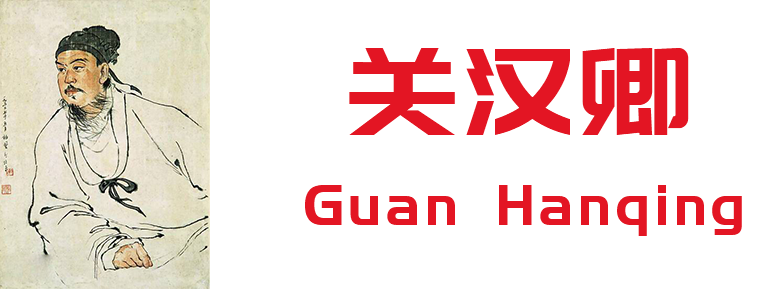
-
Xibaipo Scenic Area Pingshan County Shijiazhuang
Xibaipo is located in the middle of Pingshan County, Shijiazhuang City, Hebei Province, with a total area of 16,440 square meters. It was the seat of the CPC Central Committee.
Views: 147 Time 2018-11-24 -
Mao Zedongs former Residence
Comrade Mao Zedong's former residence is located in Shaoshan Village, Shaoshan Township, Shaoshan City, Hunan Province. It is located in the South and north of Shaoshan Village.
Views: 155 Time 2019-02-07 -
Pingyao Ancient City Scenic Spot
Pingyao Ancient City is located in Pingyao County, central Shanxi Province. It was founded in Xuanwang Period of Western Zhou Dynasty (827-782 BC)..
Views: 144 Time 2019-02-07 -
Eight Diagrams Palm
The Eight Diagrams Palm, also known as the Traveling Eight Diagrams Palm and the Eight Diagrams Linked Palm, is a traditional Chinese boxing with the main changes of palm method and walking..
Views: 177 Time 2019-04-02 -
Bemo painting
Bimo Painting of the Yi Nationality is a kind of picture on paper or animal skin, bark, bamboo slips, stone, wooden boards and other carriers painted by Bimo, a priest of the Yi Nationality..
Views: 245 Time 2019-04-04 -
Song and dance duet
Errentai is commonly known as Dual Items, two classes. Originated in Shanxi and growing up in Inner Mongolia, it is a traditional opera popular in the central and Western Inner Mongolia Autonomous Reg.
Views: 129 Time 2019-04-29 -
Good luck treasure
Haolaibao is a kind of Chinese Mongolian folk music, singing in Mongolian. Haolaibao means "alliteration" in Mongolian, that is, the first syllabic rhyme of each line of lyrics, so it is als.
Views: 348 Time 2019-05-02 -
Gold lacquer inlay decoration technique
Gold lacquer inlay decoration technology, Beijing local traditional handicraft, one of the national intangible cultural heritage..
Views: 254 Time 2019-05-07 -
24 solar terms of the lunar calendar
Twenty-four solar terms is a supplementary calendar that absorbs the "twenty-four solar terms" of the Ganzhi calendar to guide agriculture. It is the accumulation of long-term experience and.
Views: 169 Time 2019-06-08 -
Shadow Show
Shadow play, also known as "shadow play" or "lantern shadow play", is a folk drama in which characters are silhouetted from animal hide or cardboard to perform stories. During the .
Views: 104 Time 2019-06-09 -
Wangcong Temple
Wangcong temple, located in the southwest of Pidu District, Chengdu City, Sichuan Province, is 23 kilometers away from Chengdu City. It was built in memory of Du Yu, the earliest king of Shu, and his successor Cong di..
Views: 137 Time 2020-11-05 -
National characteristics of Chinese embroidery
Nationality is the distinctive feature of Qinghai Folk Embroidery. In the long process of development, Qinghai embroidery has formed its own unique style. Due to the consistency of language, religious belief, festival etiquette, culture and entertainment,.
Views: 333 Time 2020-12-12
